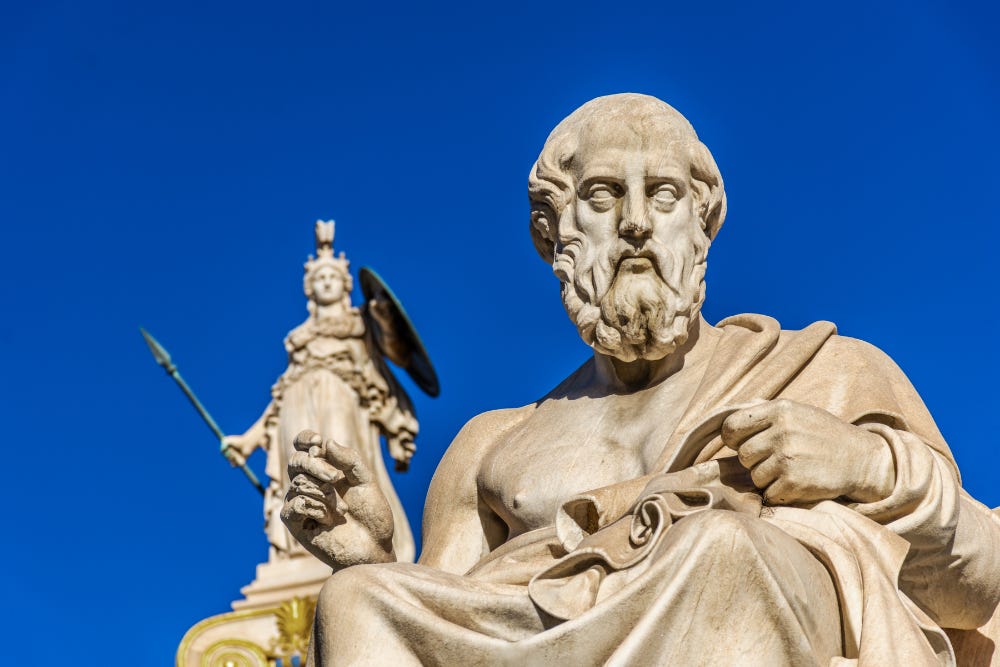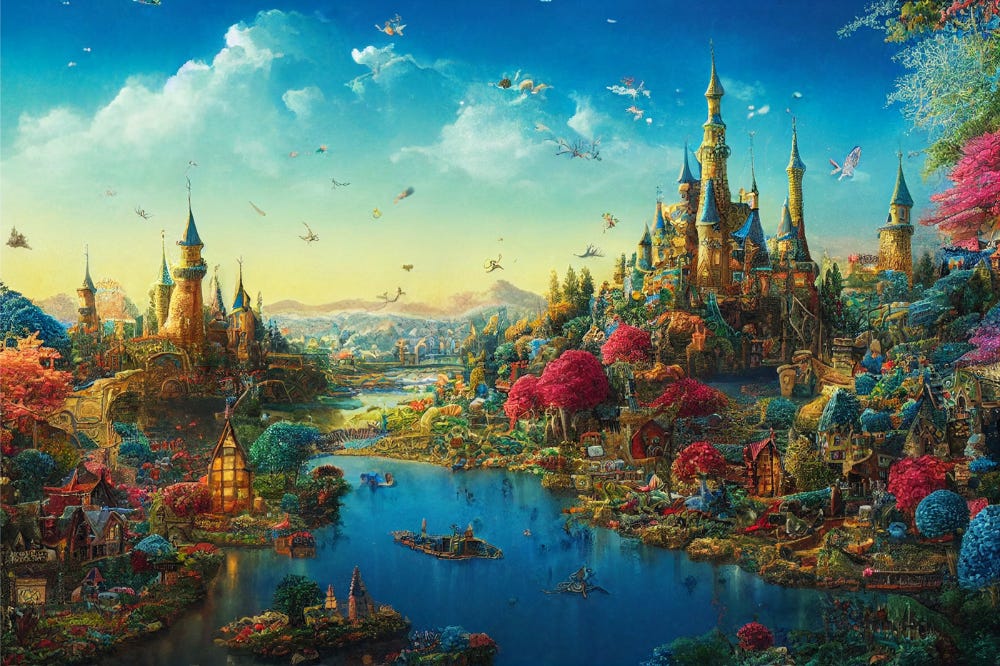What Kind Of Ideal Society Should We Be Able To Create?
Are we able to aspire to Plato's Realm of Forms? Or are we just base instincts from the Animal Kingdom?
BACKGROUND
Plato didn’t believe in democracy, because it allowed ignorant men, incompetent men, and pandering tyrants to become elected & take advantage of the people.
He wanted us to be ruled by idealized philosopher-kings who studied to become enlightened. Who didn’t have any possessions or wealth (and therefore couldn’t be distracted by them).
In many political theories, since Plato, philosophers and thinkers have given a call for a Higher Ideal. Higher, even, than ignorant or incompetent elected leaders within a democracy.
A Social Democracy is a Higher Ideal - and the call for the revolution that was Communism in the first half of the 20th century was a call for a Higher Ideal (even though many of those societies ended up becoming oppressive and authoritarian in practice).
But one thing these philosophies have in common, is the belief that there even IS a Higher Ideal. A Utopia. Perfection.
To contrast the idealists, another strain of philosophical thought that cropped up in intellectuals from the 20th century was a more realistic, agnostic humanism. (One that could loosely be perceived as being descended from Aristotle).
This realistic and more sobering view of humans described us, not as an unrealized potential to become “ideal men,” but as decedents of the animal kingdom.
If we realistically descended from apes, then not only is perfection impossible. But we're just another animal species with a very limited potential to organize our societies - organize our political structures - organize our institutions.
If we look to apes and other organisms as our shared ancestors - we have to ask - what kind of ideal society have animals ever been able to create? What is the perfect ecosystem in the natural world order? And why would we ever imagine a Utopia was possible for us, if we can’t find it anywhere else in natural ecosystems?
In this “realistic evolutionary” view of human beings, we can only look to our animal forbearers and hope to be a little better than they are.
How high can our ideals go - beyond that?
Plato’s idealism wasn’t just attractive to political philosophers, it was also attractive to spiritualists - who believe that an omnipotent, omniscient, and omnibenevolent God created man in his image.
Thus, we’re not limited to the instincts and successes of the animal kingdom. We actually have an unrealized potential beyond this world.
Plato presupposed that there was an ideal Realm of Forms that held perfect ideals just outside of our world. And that we were merely an imperfect copy of that realm. But we could aspire to capture or become some of those ideals here.
This lineage of thinking can be traced to modern religious thought today –– that, regardless of our current flaws, we can aspire to be a more perfect image of God.
QUESTIONS
Question 1: are you an idealist - or an "evolutionary realist?"
Question 2: From your first answer - what kind of ideal society should we be able to create? & Is there a perfect world order?
This perfect society could be a political society: like Plato’s “philosopher-king” society. Or Karl Popper’s “Open society” democracy.
It could be a social democracy or a communist democracy. Or any other political society.
Or it could be a basic acknowledgement of the natural ecosystems we exist within and are surrounded by, within the animal kingdom.
If we’re only animals - where does our aspiration for higher ideals come from? If we know no perfect society, why do we have dreams that it exists? Where did the sense of “Utopia” or “Heaven” come from?
If we’re only animals - how are these base instincts influencing our behaviors in society? For example, “competition of resources.”
Is there even a point to strive towards a higher ideal? A more perfect democracy?
Can we conquer the animal instinct - or are we simply doomed to repeat our base instincts?
For example, does tribalism and nationalism come again in new generations because its born from our genes and inherent to our nature?
Therefore, something like WW2 and WW1, which challenged nationalism and fought for self-determined nations, might never be a war fully won –– conquered once in history for all future generations.
Since all humans born in future societies will possess within them an animal instinct they must conquer over and over again.
QUESTIONS
Question 1: Is a higher society already formed (Realm of Forms/Heaven/Utopia)?
Question 2: Is it a novel ecosystem in the animal kingdom that we have newly evolved to have?
Question 3: Is it merely our current version of evolutionary progress? Flawed as it may be. And just a little bit of evolutionary luck?
Question 4: Or does each generation have an obligation to continue to fight against our own animal instincts - in order to advance beyond our inner beast nature?
HOW TO DISCUSS:
Please comment below OR find the chatroom to continue discussing this and other topics with us.
All free subscribers are able to comment and join the discussion. Paid subscriptions are just voluntary donations, but not required to participate!
BLUESKY
You can also find a shorter version of this discussion on my profile on BLUESKY. Each Sunday question will be posted and discussed in shorter form there, as well.
Subscribe to The Beat Philosopher every Sunday for more discussions like this.









I can’t wait to dive in tonight!
Thank you.